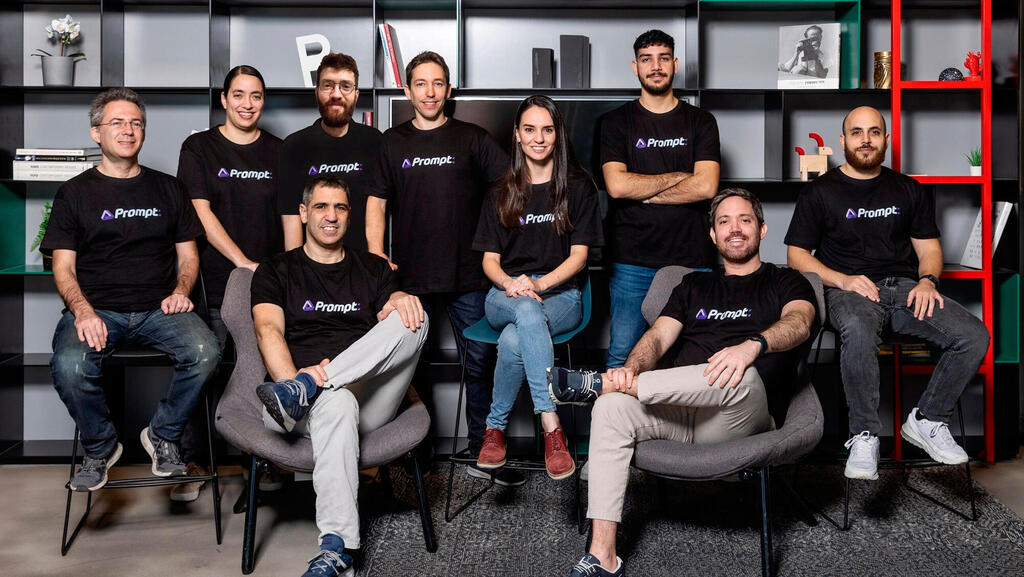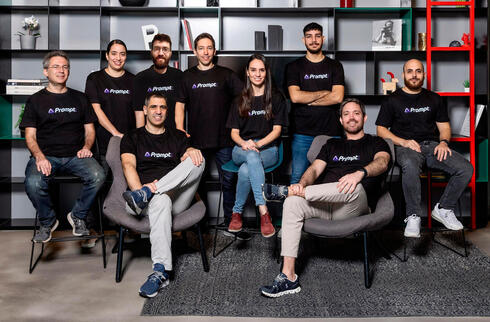
Wave of Israeli AI-Cyber exits looms as buyers circle
Prompt Security, Lasso, Aim, Pillar, and Noma are all tipped as the next targets in Israel’s red-hot AI-cyber M&A race.
A phenomenon somewhere between summer hype and a genuine arms race is now unfolding in the cybersecurity sector, all centered on the hottest subfield of the moment: artificial intelligence. Over the past three years alone, no fewer than 30 AI-focused cybersecurity startups have been launched, many of them in Israel, the world’s unofficial cyber hub.
Datadog in talks to acquire Upwind for $1 billion
The AI revolution has shaken the cyber world at every level. Attackers have learned to harness AI, launching assaults with so-called toxic prompts designed to manipulate models in unexpected ways. Meanwhile, employees across organizations, increasingly reliant on ChatGPT and similar tools, are unwittingly leaking valuable data to hackers. On the defensive side, AI promises to accelerate the development of new security tools, and everyone wants in.
In April, Palo Alto Networks fired the starting gun with the headline-grabbing acquisition of Protect AI for around $700 million. The deal marked a decisive shift, triggering a gold rush for AI-driven cyber solutions. In May, American firm Tenable grabbed Israel’s Apex for about $100 million, further fueling the frenzy that began a year ago when Cisco snatched up Israel’s Robust for half a billion dollars.
Calcalist has learned that the past few weeks have seen acquisition offers land on the desks of multiple Israeli founders. U.S. giants Zscaler and F5, valued at about $45 billion and $17 billion, respectively, are circling, while Israeli heavyweight Check Point, now at a record $23 billion valuation, is also bidding. Yet while U.S. firms are offering $200–$300 million for promising startups, Check Point’s rumored bids hover closer to $100 million. Veronis, Israel’s $6 billion cyber player, courted Apex too, which ultimately sold to Tenable, and it’s still hunting for an “AI toy” to buy.
Founders Claim Independence, Investors Eye Exits
“The market is on fire, it feels like a supermarket sweep,” one Israeli AI-cyber founder told Calcalist. “Zscaler and F5 came knocking too. We’re not for sale, but I expect our rivals to sell soon.” Another founder, also a VC, agreed: “The Protect deal didn’t just wake up the buyers, it electrified investors. Startups can now choose their backers, the size of the round, and even weigh buyout offers.”
Every founder insists they’re not selling, that they’re building the next Wiz or Cyera, and quickly point to competitors as the likely sellers. Venture funds, however, are far less sentimental, and many are pushing for exits. It is estimated that at least three Israeli AI-cyber exits will close in the next few months. The likely targets? Prompt Security, Lasso, Aim, Pillar and Zenity. Those that hold out are busy closing fresh mega-rounds, rumored at $50–$100 million.
These are remarkable sums for such young companies. Apart from Zenity, all these startups were born in 2023, after the GenAI boom. Most have only completed Seed or Series A rounds, employ just a few dozen staff, and have early-stage sales, nearly none exceeding $10 million in annual revenue. Even so, momentum is real: insiders say Noma is close to a large round, Prompt has term sheets for a round and buyout offers, though everyone denies anything is final.
If it were solely up to the acquirers, we would already be hearing about a wave of exits. But right now, there are bitter arguments between entrepreneurs, who want to remain independent, and investors, who see a chance for a quick windfall. Given the sheer number of startups that have emerged at the same time, venture capital funds know that not all of them will turn out to be winners.
Related articles:
A Talent Grab Disguised as M&A
So why spend hundreds of millions on these tiny teams? For buyers, it’s more about acquiring talent and technological building blocks than mature products. As one cyber executive put it: “It’s easier to buy 30 brilliant people for $200 million than hire 30 for less and hope they invent something from scratch.”
Take Palo Alto’s Protect AI deal: industry consensus says the giant didn’t buy the product, Protect was making just $5 million a year when acquired, but bought an experienced West Coast AI team. Since then, Protect’s product hasn’t even launched as part of Palo’s platform, a clear sign the deal was more about brains than code. “Everyone feared Palo Alto would dump Protect’s solution on the market for free, but they haven’t. They just wanted the talent,” said one founder. Check Point’s new AI center and plans to hire 500 more staff this year hint at the same strategy, buying shortcuts to human capital.
Israel’s AI cyber boom mirrors Silicon Valley’s AI talent wars. Most local founders came out of the same elite 8200 intelligence unit, and know each other well. Some U.S. AI-cyber startups are also attracting suitors, but are pricier. However, unlike Israeli teams, they won’t disappear into reserve duty mid-project.
This race is happening at breakneck speed. In 2024 alone, AI cyber sales worldwide hit $24 billion, most to established giants, but the segment is forecast to grow 25% annually, topping $100 billion by the end of the decade. The consensus? By year’s end, the first round of M&A musical chairs will be done. Those who don’t find a buyer (or the money to scale) will have to fight the giants head-on, and hope they become the next Wiz.
